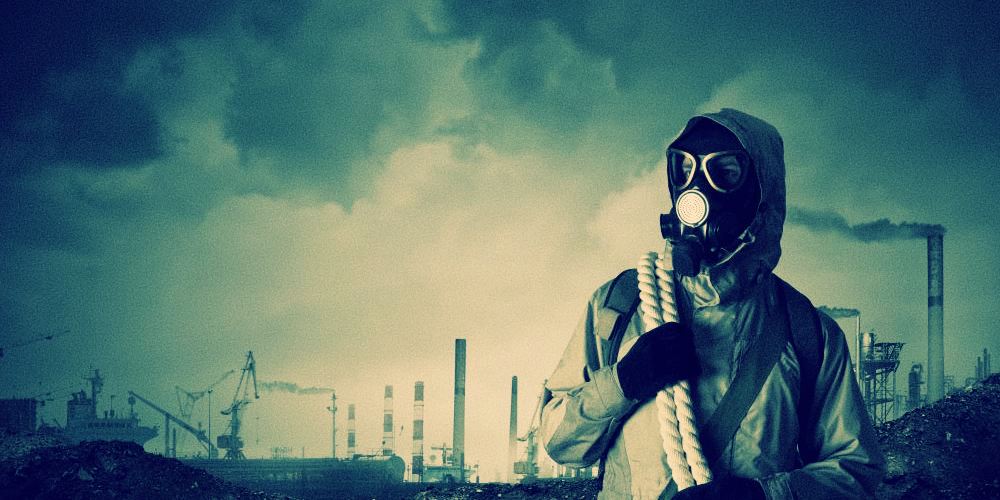(Natural News)—When faced with biological threats – whether from natural outbreaks or bioterrorism – being prepared and knowing how to respond can be crucial for survival. Each type of threat poses unique challenges, but understanding these risks and having a plan can significantly enhance your safety and survival.
Biological attacks can involve two main types of agents (pathogens or toxins that can harm animals, crops or humans) – contagious and non-contagious. Some agents, such as anthrax, can survive in the environment for extended periods – increasing the risk of exposure. Notably, many biological attacks may go unrecognized for days, as the incubation period can delay symptoms.
To effectively prepare for biological threats, consider the following survival tips:
Stay informed
Always monitor trusted sources. Regularly check official information channels for updates and guidance during emergencies. Engage with community programs that promote awareness of potential threats. Avoid misinformation; be wary of “rumors” and stick to reliable sources to make informed decisions.
Build a survival stockpile
Regularly monitor and update your essential supplies inventory – food, water, pantry, first aid and medical supplies, hygiene and sanitation, heat and lighting and communications.
Create a safe zone at home
Fortify your home by identifying its weaknesses and designating safe rooms that will reduce exposure risk. Keep a supply kit in your safe room. To minimize air contamination, use plastic sheeting, duct tape and towels. Install high-efficiency particulate air (HEPA) filters in your home to capture biological agents.
Plan and implement quarantine and isolation
If you develop symptoms or have contact with infected individuals, self-isolate immediately. Keep healthy individuals in your home separate from those showing signs of illness – using separate rooms and bathrooms if feasible.
Use personal protective equipment
Keep a reasonable stash of masks and other protective gear. Use N95 or N99 masks as regular surgical or reusable cloth mass may not filter all biological agents effectively. Wear gloves, eye protection and long sleeves when in contact with potentially contaminated surfaces. Use disposable, or easily washable clothing to minimize the spread of contaminants.
Follow decontamination protocols
Maintaining good personal hygiene and practicing proper sanitation helps reduce the risk of infections and diseases that could impact overall health. Regular hand washing, safe food handling, and keeping your living environment clean are essential practices.
Wash hands more frequently, especially after being in public places or touching potentially contaminated items. Regularly clean high-tough surfaces in your home with disinfectants such as bleach solutions or alcohol-based cleaners. (Related: Safe and clean: 8 Non-toxic alternatives to common household cleaning products that contain harmful ingredients.)
- Gold SKYROCKETED during Trump’s first term and is poised to do it again. Find out how Genesis Precious Metals can help you secure your retirement with a proper self-directed IRA backed by physical precious metals.
Boost your immunity
Healthy lifestyle changes that have a major impact on your overall health and wellness include a balanced diet, daily physical activity and exercising regularly, maintaining healthy body weight, getting adequate quality sleep, getting regular health checkups, and being aware of your family’s history.
Be mindful of reducing and managing stress. Engage in relaxation techniques, find activities you enjoy, or do something different that refreshes your routine and energizes your life, socialize and meet new people.
Establish a communication plan
Keep practicing and streamlining your family communication plan that outlines how each of you will remain in touch during emergencies. Ensure everyone knows how to reach each other and keep planning for contingencies. Maintain an updated list of local emergency services, family and trusted friends who can assist in any kind of crisis.
Be proficient in basic survival skills
Enroll in first aid training courses to learn how to treat common injuries and manage health emergencies effectively. Get certified in CPR and other essential skills to be prepared to assist others in critical situations. Volunteer in medical emergency missions for first-hand experience, mentoring and proficiency.
Plan for your pets
Include stockpiling emergency pet essentials. Include pet food, medication, water and a pet first aid kit in your survival stockpile. Create a plan for evacuating your pets, if necessary, including transport options and accommodations.
Practice situational awareness
Stay alert. Be aware of your surroundings and any unusual activities, especially in crowded places. Familiarize yourself and your family with escape routes in public spaces and your home.
Maintain a positive mindset
Mental resilience is key. Focus on a positive attitude to help cope with stress during emergencies and survival situations. Stay connected with family and friends to share experiences and support each other.
Develop a survivor instinct
Cultivate a mindset that prepares you and your family to adapt and respond to challenges. Visualization techniques can help you mentally rehearse potential scenarios Reflect on past emergencies (personal or community or your ancestors’) and identify what worked and what didn’t to improve future responses.
In the event of a serious biological threat, your goal is to obtain medical aid and minimize exposure. If symptomatic, immediately seek medical treatment at facilities designated by public health officials. Adhere to guidance and instructions from health authorities regarding potential exposure, including quarantine or surveillance.
If you suspect exposure to a contagious disease, such as smallpox), seek vaccination. For non-contagious diseases (such as anthrax) obtain appropriate antibiotics promptly. If there’s any doubt about contact with a biological agent, remove contaminated clothing, shower with soap and water and seek medical attention. If feasible, leave affected areas as soon as you are on a treatment regimen, if advised by officials
Being prepared for biological threats is essential for ensuring your safety and that of your loved ones. By having a plan, staying informed, stockpiling essential supplies, creating safe zones, practicing hygiene and sanitation, living healthy choices and honing your emergency response skills, you can enhance your resilience in the face of potential dangers. Timely and informed action can make a significant difference in critical situations.
Watch this video to learn some tips for surviving biological dangers. This video is from the Daily Videos channel on Brighteon.com.
More related stories:
- Ways to develop mental toughness and a survivor mindset when SHTF.
- Physical preparedness is a way of life. Regular physical labor improves your health and chances of survival.
- Are you THRIVING or SURVIVING? Science reveals your mindset is key.
Sources include:
- SimpleFamilyPreparedness.com
- OJP.gov
- MadSurvivor.com
- PreppersWill.com
- MyClinicGroup.com
- Brighteon.com




